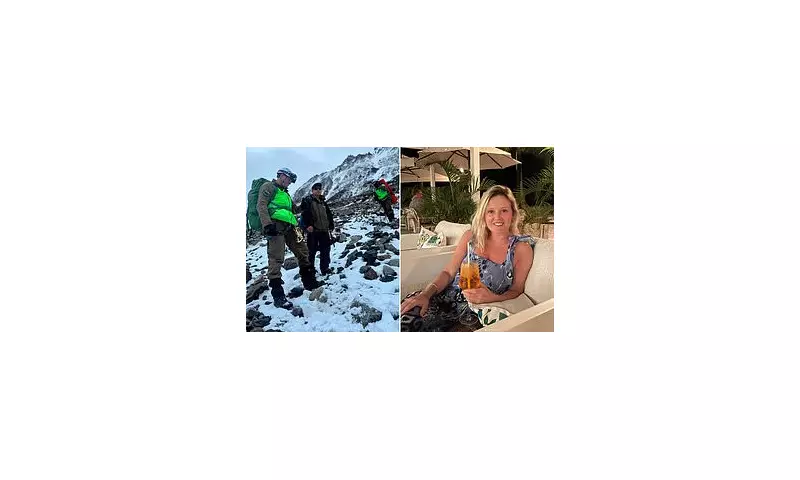
A London musician who had never seen a dead body found himself confronting unimaginable horror high on a Chilean mountain this week, as a catastrophic blizzard claimed five lives including that of his friend from Cornwall.
The Fatal Ascent
Tom Player, a musician who recently worked on John Lewis's Christmas advertisement, described the moment he discovered Julian Garcia Pimentel from Mexico lying unresponsive in the snow during a blizzard with winds reaching 120mph. "I found the unresponsive body of Julian Garcia Pimentel, from Mexico, lying on his front with his eyes wide open," Player told the Daily Mail.
The tragedy unfolded on Monday in Torres Del Paine, Chile's most visited nature reserve, when a severe snowstorm engulfed trekkers in what survivors describe as completely preventable circumstances. Among the dead was Victoria Bond, a 40-year-old PR worker from Cornwall, along with two German nationals and two Mexican citizens.
Multiple survivors have come forward with alarming allegations against park authorities and campsite managers, claiming they were misled about safety conditions and forced to mount their own rescue operations when professional help failed to materialise.
Systemic Failures Exposed
Survivors told the Daily Mail that despite the obviously dangerous conditions, staff at the park run by CONAF - Chile's park authority - and Vertice, the company managing campsites, assured them it was safe to proceed with their ascent.
"We'd been shown the weather forecast at the Los Peros camp, which is managed by Vertice. And they said, 'oh, it's normal'," Player recounted. Maeve, an experienced hiker from California who was also caught in the storm, added: "These [staff] from Chile... did not suggest that we don't go, we trusted them."
The consequences of this advice proved nearly fatal for many. Chris Aldridge, a TV and film director travelling with Player and Bond, described the descent as "pretty terrifying. I slid down the mountain once at a very high speed and I couldn't stop. It was just sheet ice."
Survivors reported that CONAF rangers were absent from the nearest campsite when they returned from the mountain, forcing them to initiate rescue efforts themselves. According to accounts, a formal rescue operation wasn't launched until the following morning.
Improvised Rescue Efforts
What followed was a desperate scramble for survival that exposed the complete lack of emergency preparedness. Lydia Birch, an emergency doctor from Australia, helped establish a treatment space at the base camp, where she encountered "at least four head injuries", frostbite, and severe distress among survivors.
"Our medical team was entirely comprised of international doctors, a paramedic and a nurse practitioner who were hiking the trail," Birch revealed, highlighting the absence of professional medical support from park authorities.
Even more shocking were the accounts of survivors having to construct makeshift rescue equipment. "We built stretchers out of walking poles, tarpaulins and sleeping mats," Aldridge said. Player added the devastating postscript: "We later found out there was a stretcher in a f***ing cupboard, but no one had the key."
Player himself mounted multiple rescue attempts to find his missing friend Victoria Bond, describing how he gave his own coat to a hypothermic woman and attempted to revive Julian Pimentel before realising he had to abandon his search for Victoria or risk dying himself.
Aftermath and Accountability
In the wake of the tragedy, CONAF has stated it will "review the safety and communication protocols in the park's circuits together with the concessionaires, with the aim of strengthening prevention and emergency response capacity". Chilean police are also investigating the incident.
However, for those who survived the ordeal, these measures feel insufficient. "There were so many failures on top of each other that led to this," Player said. "It's a tragedy that should have been avoided."
Lydia Birch delivered a solemn verdict that echoes the sentiments of many survivors: "What happened on that pass was a completely avoidable tragedy." The survivors are now calling for increased CONAF presence in the park, clear emergency plans, proper communication systems, and rigorous staff training to prevent future catastrophes.
As the investigation continues, those who lived through the Patagonia blizzard are left grappling with survivor's guilt and the haunting knowledge that better procedures might have saved their friends' lives.





